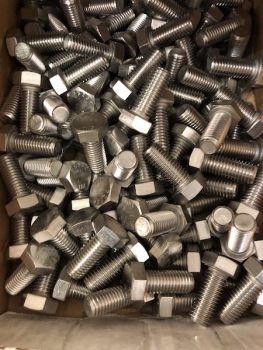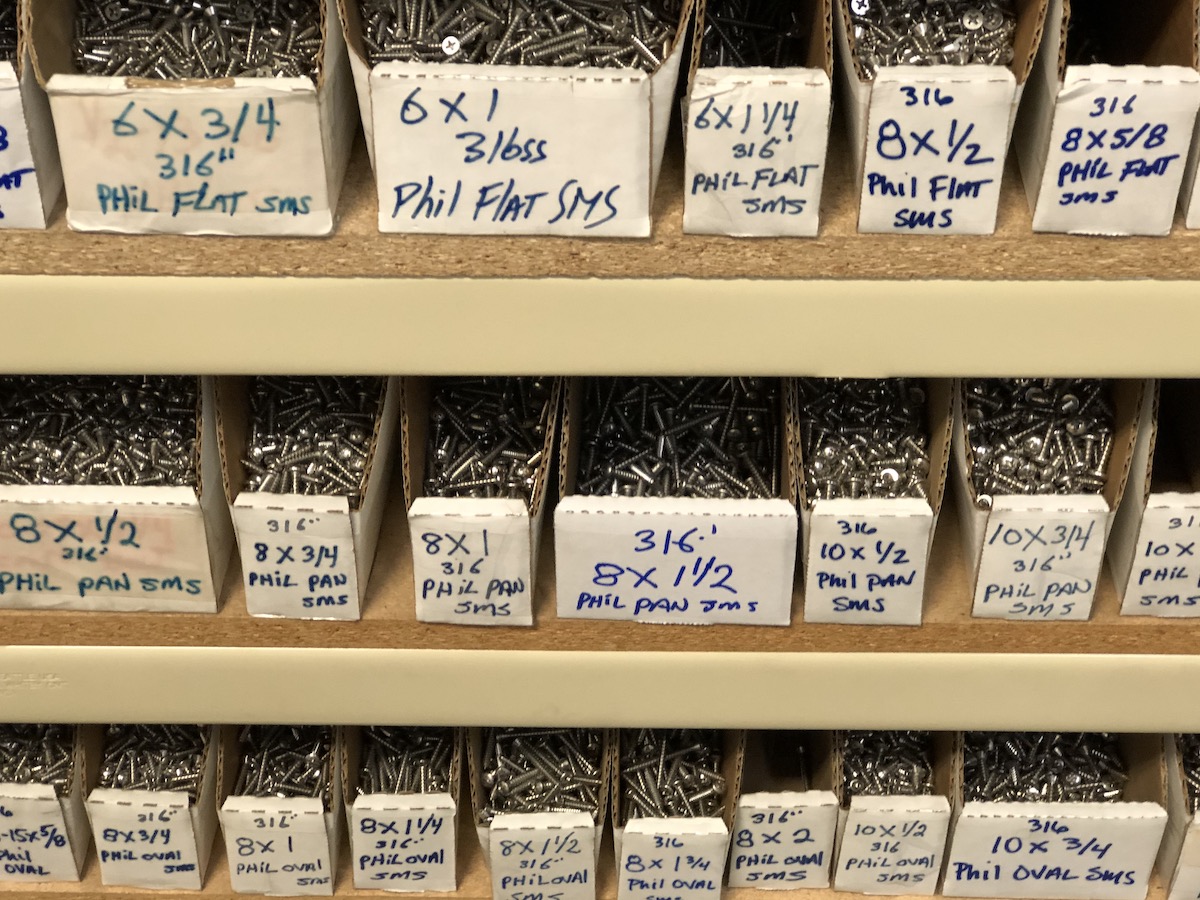What is the Difference Between Ferrous and Non-Ferrous Metal?
Simply, ferrous metals contain iron and non-ferrous metals do not. However, both non-ferrous and ferrous metals have their own unique properties which determine for which applications they’re most suited. Ferrous metals are often magnetic and more susceptible to rust and corrosion when exposed to the elements.
Which Metals are Ferrous?
Ferrous metals contain iron and some common ferrous metals include alloy steel, carbon steel, cast iron, and wrought iron. Ferrous metals are often used in the construction industry and is used in the tallest buildings due to their strength and durability. Additionally, ferrous metals are often used in shipping containers, industrial piping, car engines, railroad tracks, and many other commercial tools.
Ferrous metals have a high carbon content which, unfortunately, makes them vulnerable to rust when exposed to the elements, especially moisture. Most ferrous metals are magnetic which can make them very useful for motor and electrical applications. For example, your refrigerator door is made of ferrous metals which allows you to stick magnets to it.
Steel
Steel is manufactured by adding iron to carbon which makes the iron harder. Steelworkers make steel by heating and melting iron ore in a furnace. Then, they tap the steel from the furnaces and pour it into molds to form steel bars for use in construction and manufacturing.
Carbon Steel
Carbon steel has a much higher iron content than other types of steel. This makes carbon steel incredibly hard and useful for the manufacturing of machine tools, drills, blades, taps, and springs.
Alloy Steel
Alloy steels incorporate additional metals such as chromium, nickel, and titanium to increase strength and durability without increasing the weight of the metal. Stainless steel is an important alloy steel made with chromium. Alloy steels are most commonly used in construction, machine tools, and electrical applications.
Cast Iron
Cast iron, despite its name, is actually an iron alloy made from iron, carbon, and silicon. Cast iron is typically brittle and resistant to wear. It’s often used in water pipes, machine tools, car engines, and stoves.
Wrought Iron
Wrought iron is pretty close to pure iron. However, ironworkers add some slag to the iron so that it has resistance to corrosion and oxidation. Wrought iron is typically used for fencing and railings, nails, barbed wire, and chains.
Which Metals are Non-Ferrous?

Call Seattle Nut & Bolt for all of your non-ferrous fastener needs in Tacoma.
The most common non-ferrous metals include aluminum, copper, lead, zinc, tin, and precious metals such as gold and silver. Non-ferrous metals are used in a variety of applications, including as fasteners for various projects.
Four Benefits of Non-Ferrous Fasteners
There are multiple benefits to using non-ferrous fasteners for your project, depending on the application. Most notably, non-ferrous metals and fasteners are great for marine construction or any structures routinely exposed to the elements.
1. Stain Resistance
One of the benefits to non-ferrous fasteners is its stain resistance. This makes non-ferrous fasteners great for cosmetic applications.
2. Malleability
Non-ferrous metals are much more malleable than ferrous metals, making them a great choice for fasteners and other parts that need to be molded into custom shapes.
3. Corrosion and Rust Resistance
Non-ferrous fasteners are much more resistant to rust and corrosion than ferrous fasteners. This resistance improves their durability and reliability, especially when exposed to the elements.
4. Heat Resistance
Non-ferrous fasteners have high heat resistance which makes them suitable for use in applications such as food preparation.
How Can Seattle Nut & Bolt Help You?
No two businesses are the same. That’s why we take the time to understand your company or project and how we can help you succeed. We have experience serving a wide range of customers, and we can help you save time, money, and stress when it comes to your next order of screws, bolts, nuts, washers, and more. Call today for a quote!

